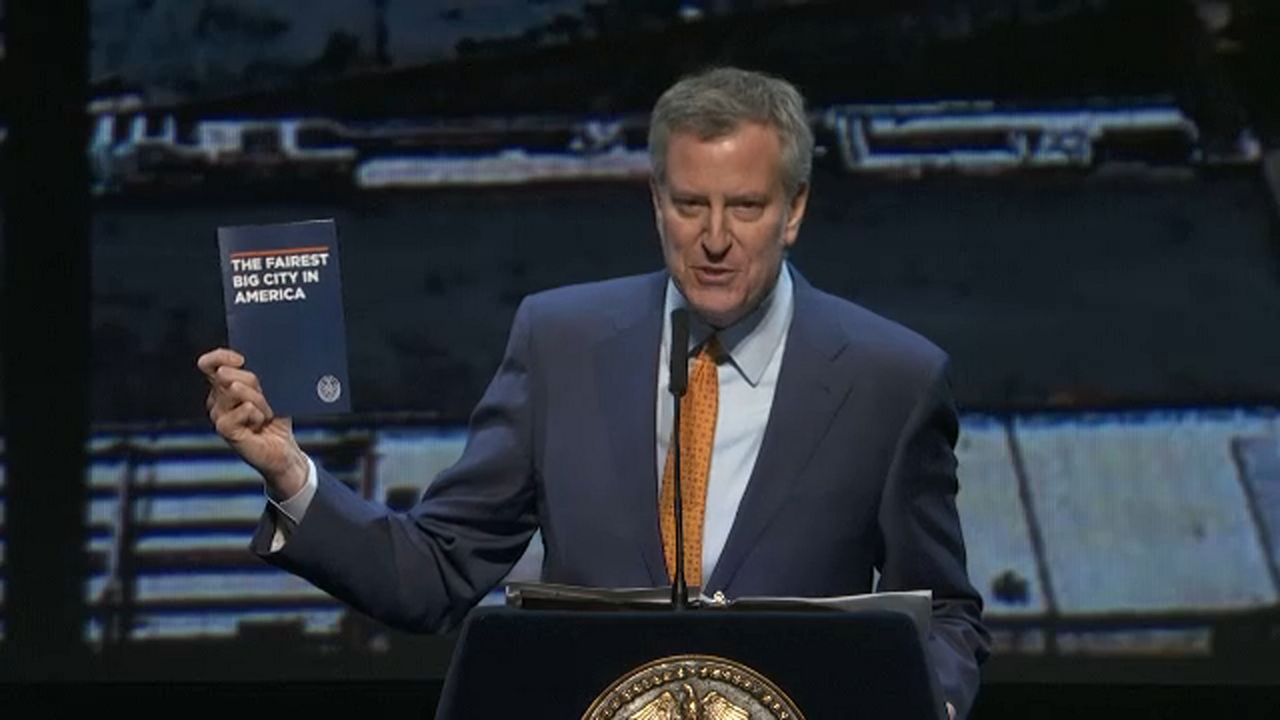Mayor Bill de Blasio made his pitch for a fairer New York City and increased civic engagement at his State of the City address Tuesday night in Brooklyn, laying out his plans for his second term.
Speaking for more than an hour at the Kings Theatre in Flatbush, the mayor provided a 12-point outline of how he wanted to make New York City the fairest big city in the United States before turning to a 10-point plan on how he wants to increase civic engagement in the city and state.
De Blasio did not dive into many details for his first plan, reiterating some of his existing goals such as his "3-K for All" plan, continuing neighborhood policing, fighting income inequality, and cutting emissions.
But the mayor announced some new initiatives for his civic engagement plan, DemocracyNYC.
Among some of the proposals he mentioned included pressuring Albany to pass voting reform such as same-day registration, appointing a commission to propose a plan to fund local election campaigns mostly with public money, investing more funds into the Board of Elections and pushing younger New Yorkers to vote.
De Blasio also again defended his "Millionaire's Tax" proposal to tax wealthy New Yorkers to help fund subway repairs, and said his administration would make Rikers Island safer, responding to criticisms from the correction officers' union after four inmates allegedly attacked a guard Saturday.
Less than 50 demonstrators picketed outside the Kings Theatre before the mayor spoke, with some handing out flyers slamming the city over heating outages in many New York City Housing Authority units this winter.
De Blasio said he wants the city to take over some of the work of the Board of Elections, such as voter outreach, while calling for a new civics curriculum for city schools.
Inside the theater, the speech often fell flat despite the fact that de Blasio supporters largely filled the crowd.
"It was long, but it was short on detail," Public Advocate Letitia James said.
James was critical of the mayor's approach, saying he gave only passing attention to the city's public housing system and the need for more affordable housing.
"What I did not hear about were issues New Yorkers care about," she said.
Some of the election reforms the mayor is calling for, like early voting or same-day voter registration, will require support from lawmakers in Albany. Others the city can enact on its own with buy-in from city voters.
De Blasio made it clear that he wants at least some of these reforms enacting quickly. He said New Yorkers can expect to vote on changes proposed by the charter revision commission in November.



